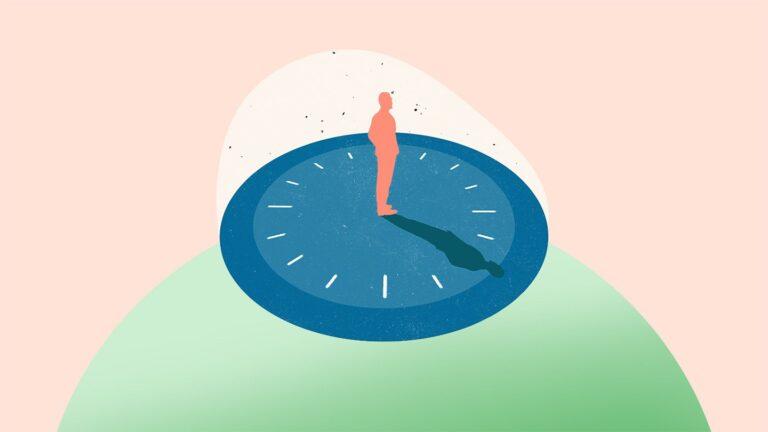PMS can be a real drag. But there are some natural ways to relieve those pesky symptoms and still feel like yourself. Learn how to fight back and achieve some PMS relief with these natural remedies and treatments.
What is PMS?
Premenstrual syndrome, also known as premenstrual tension (PMT), is often a cluster of symptoms that some women experience in the days leading up to their menstrual cycle.
These symptoms are caused by hormonal changes and can include physical, emotional, and behavioural changes. They can vary from one person to another, ranging from mild to severe, but often include mood swings, fatigue and cramps. The most common emotional changes are irritability and depression.
Symptoms usually start a few days before a period, however, they can start as early as one to two weeks before menstruation. They tend to go away shortly after menstruation begins.
Symptoms of PMS
As mentioned, the symptoms can vary between each woman, and they can even vary each month. Here are some of the most common PMS symptoms:
The list goes on!
As those who suffer from PMS will know, it can be a very unpredictable time of the month and very unpleasant, affecting their day-to-day life and overall happiness. It does not just cause misery for the woman herself and her feelings, but it can also unavoidably impact relationships and work life.
Could it be PMDD?
If depression or anxiety is extreme, it could be a more severe form of PMS called PMDD. I’ll let Mind explain:
“Premenstrual dysphoric disorder (PMDD) is a very severe form of premenstrual syndrome (PMS). It causes a range of emotional and physical symptoms every month during the week or two before your period. It is sometimes referred to as ‘severe PMS’.”
Whilst someone with PMS might feel depressed in the days leading up to the period, a person with PMDD might feel hopeless and suicidal, in which case it’s advisable to seek help from a registered GP.
However, if it’s PMS then there are many ways you can help to alleviate the dreaded symptoms each month by yourself, at home.
Natural ways to relieve PMS
It’s not always entirely possible to get rid of PMS symptoms, but there are many natural remedies for PMS relief to make that time of the month a bit easier. Here are some of the best solutions to ease the various symptoms of PMT and why they help.
1. Self-care
Self-care is important for everyone, but it is especially important for people who suffer from PMS. It can help us keep our mental and physical health in check. It is a way to take care of ourselves, so we can be the best version of ourselves. Self-care can also help with PMS symptoms, as it helps reduce stress and anxiety.
Eating well, exercising and getting enough sleep are all part of a self-care routine, but also finding ways to relax and treat yourself such as long bubble baths, face masks, candles and escaping into a book are all ways to practice self-care that could make PMS symptoms more bearable.
To make it easier to shop for wellbeing items dedicated to the menstrual cycle, the website Unfabled offers self-care kits purely for this purpose. Unfabled are on a mission to empower women to take control of their wellbeing during the menstrual cycle through a curation of products supporting ethical, women-owned and sustainable brands.
2. Eat a healthy diet and avoid junk food
It can be difficult to follow a normal healthy diet during PMS as cravings might be all over the place, as well as increased hunger. However, a healthy diet will help a person to regulate their hormones and avoid mood swings. Eating junk food, sugar, alcohol, caffeine, and salt can lead to hormone imbalances that can worsen the symptoms of PMS.
As nutritionist Gale Madalena explains in the Stylist “You may crave sugar when you’re coming on, but a diet rich in simple carbs and refined sugars can wreak havoc on our hormonal health. “It raises insulin levels, increases cortisol production and contributes to elevated stores of oestrogen in our fat cells.
A diet that is consistently high in sugar will result in elevated levels of insulin, a hormone needed to shuttle sugar out of your blood and into your cells. Over time your body can become desensitised to the effects of insulin and this will drive oestrogen dominance.”
When you’re experiencing PMS, it can be hard to even think about eating healthy food. But if you do your best to eat well and avoid junk food, your mood will thank you.
3. Exercise
Regularly exercising releases endorphins, which can reduce pain, relieve stress and improve mood. However, it can be hard to exercise once you’re in the throes of PMS and suffering from abdominal cramps, back pain and breast tenderness.
For breast tenderness make sure you wear a very supportive sports bra. Listen to your body and stop if it’s too painful to exercise. Instead of thrashing it out on the spin bike or treadmill, take it a little easier with walks in nature and gentle yoga during PMS.
4. Drink lots of water
A lack of water can lead to dehydration and a number of other health problems. One of the most effective ways to reduce PMS is to drink lots of water. Water helps the body maintain a healthy balance of fluids and reduces the risk for headaches, constipation, cramps, bloating, acne and other PMS symptoms. You can also add some lemon, which has been shown to have a calming effect on women with PMS.
5. Natural supplements
While the menstrual cycle and PMS are natural processes, the side effects can become quite unpleasant. One way to manage the unwanted symptoms is by using natural supplements. This can be a good idea for those who are looking for a natural or herbal remedy that doesn’t involve a subscription from a doctor.
As with all types of natural remedies, there can be some trial and error to find the natural supplement that works. It can also take a few weeks to see the effects, so it’s not always an instant relief.
Here are some of the best natural supplements for PMS:
6. Take care of your mental health
PMS can really take its toll on mental health, with hormonal fluctuations altering mood drastically, even causing depression and anxiety.
There are many reasons why it’s important to take care of your mental health during PMS. One of the most important ones is that it can help you feel better and more in control. It can also help you avoid feeling overwhelmed by the symptoms and feeling like they’re taking over your life.
It is important to remember that taking care of your mental health does not need to be a long term commitment, but rather a series of small actions, like going for a walk or meditating every day. It can be practising self-care as outlined above or even meeting a friend for a chat and reassurance you are not alone!
Final word
There are many natural remedies for PMS that can help reduce the symptoms, but it’s important to find what’s right for you. This article offers some helpful tips on how to do that whilst taking care of your mental and physical health.
This content was originally published here.




















